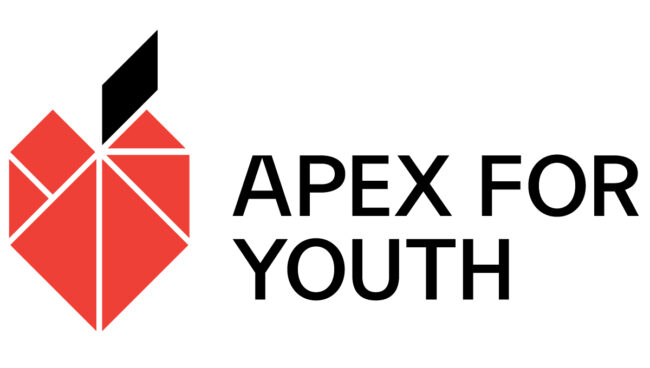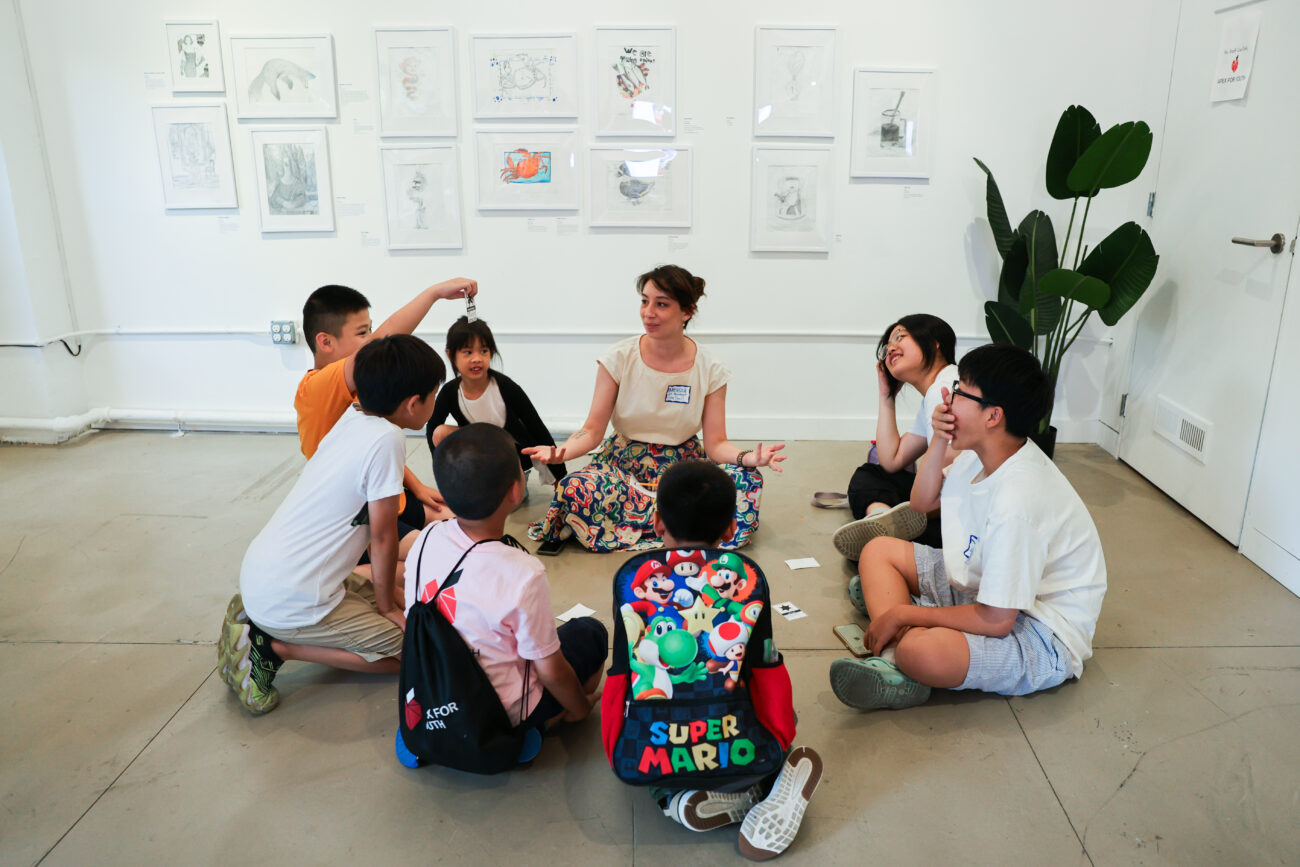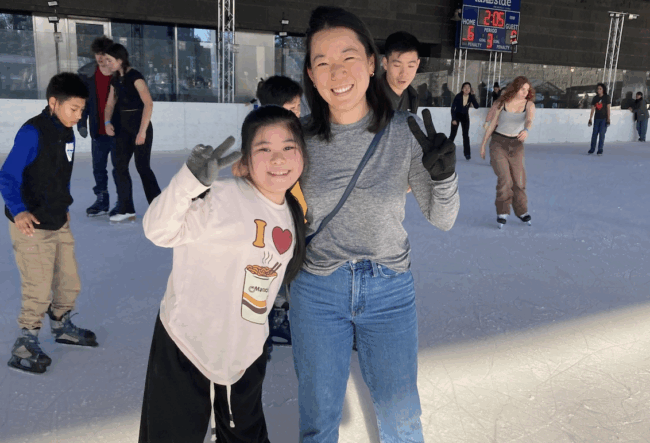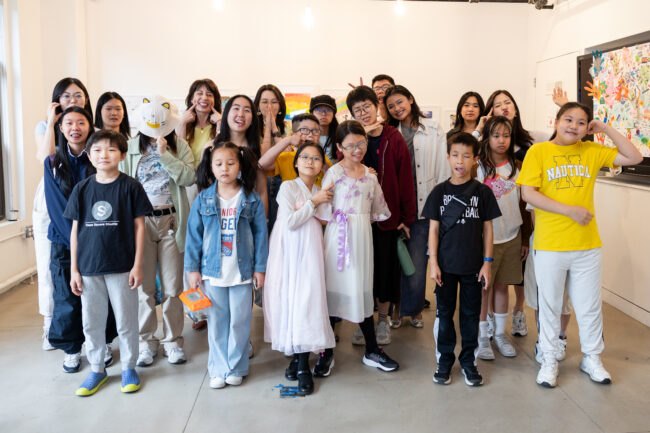Throughout May, in recognition of Mental Health Awareness Month, our mental health team was proud to contribute to two powerful convening of thought leaders, educators, and advocates focused on advancing mental health equity in Asian American and immigrant communities.
Launched in response to the COVID-19 pandemic and a rise in anti-Asian racism, Apex for Youth’s Mental Health Services (MHS) provides accessible mental healthcare that helps Asian American youth heal intergenerational patterns and build community through individual therapy, peer support groups, family nights, and community events.
- Did you know? Across all racial and ethnic groups, Asian Americans are the least likely to seek mental health care and more than 3 in 4 Asian Americans feel less safe than before the pandemic.
Our culturally responsive approach centers the lived experiences of Asian immigrant youth, using creative and relational tools like play-based therapy to foster emotional growth, safety, and resilience.
We’re creating spaces where youth feel seen, supported, and empowered with over 100 families engaged, more than 1,000 hours of therapy delivered, a 16% decrease in stress reported by youth in individual therapy, and 353 individuals served through our broader community programs.
Rebuilding Joy Through Play: Insights from the AAARI 2025 Symposium
At the Asian American / Asian Research Institute (AAARI) 2025 Symposium, co-organized with NYU Steinhardt, Ivy Li, LMSW and Melissa Lee Alvey, LCAT, ATR-BC from our mental health team led a presentation as part of the panel “Healing and Resilience in AANHPI Youth: Embracing Strengths and Overcoming Mental Health Barriers.” Their talk, “The Power of Play: Reconnecting Families and Rebuilding Joy in Asian American Youth,” focused on the critical role of play in fostering emotional connection, healing, and resilience among Asian American youth and their families.
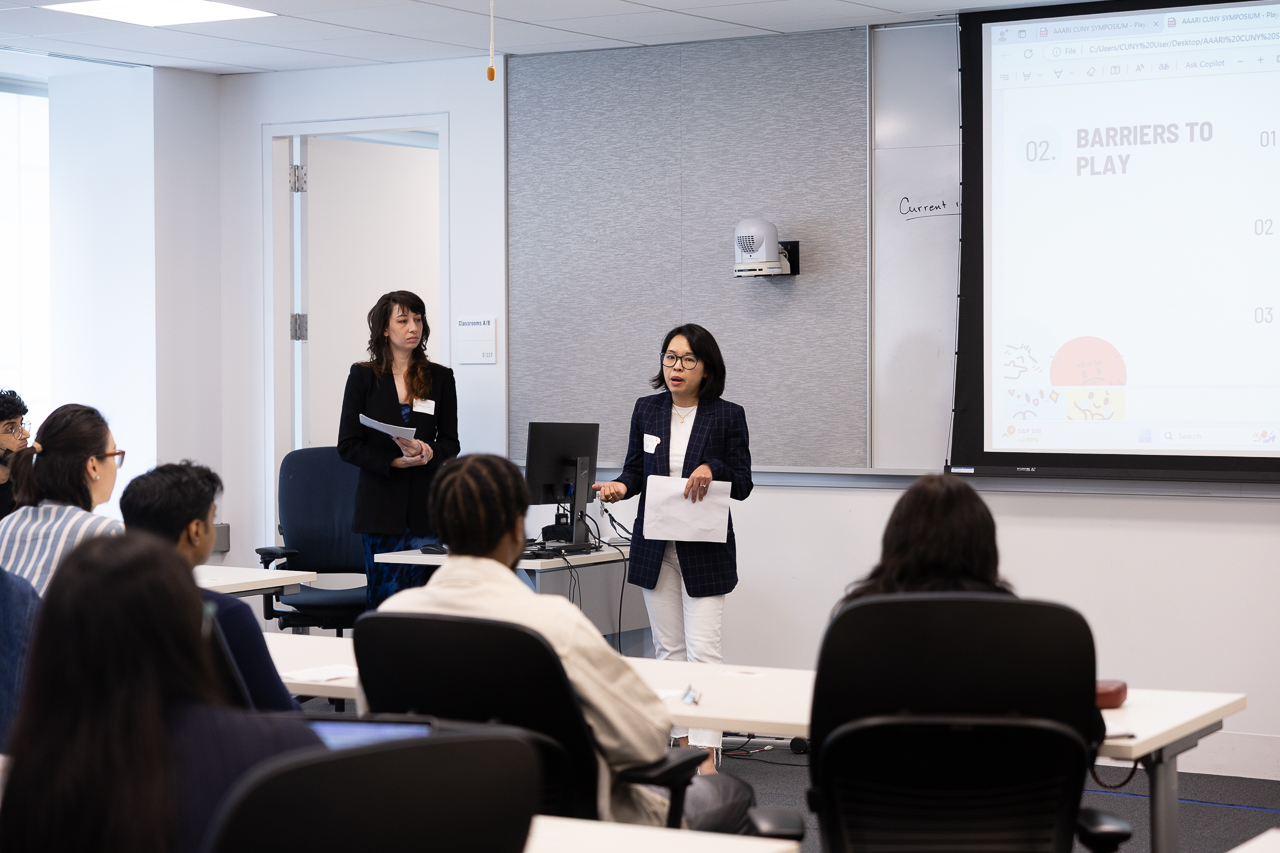
Play-Based Therapy as a Tool for Connection and Healing
Despite being the racial/ethnic group least likely to seek or receive mental health support, Asian American youth experience high levels of stress and emotional isolation. Suicide is the leading cause of death among Asian American youth. In response, our mental health team launched therapy services in 2019 amid the COVID-19 pandemic and the rise in anti-Asian hate. These services integrate structured play-based therapy including both imaginary and game play to support youth in building emotional vocabulary, frustration tolerance, and peer relationships in a culturally affirming environment. Ivy and Melissa shared case studies from Apex therapy groups, where youth not only gained emotional regulation tools, but also co-created group norms and built meaningful connections reducing their reliance on screens and isolation.
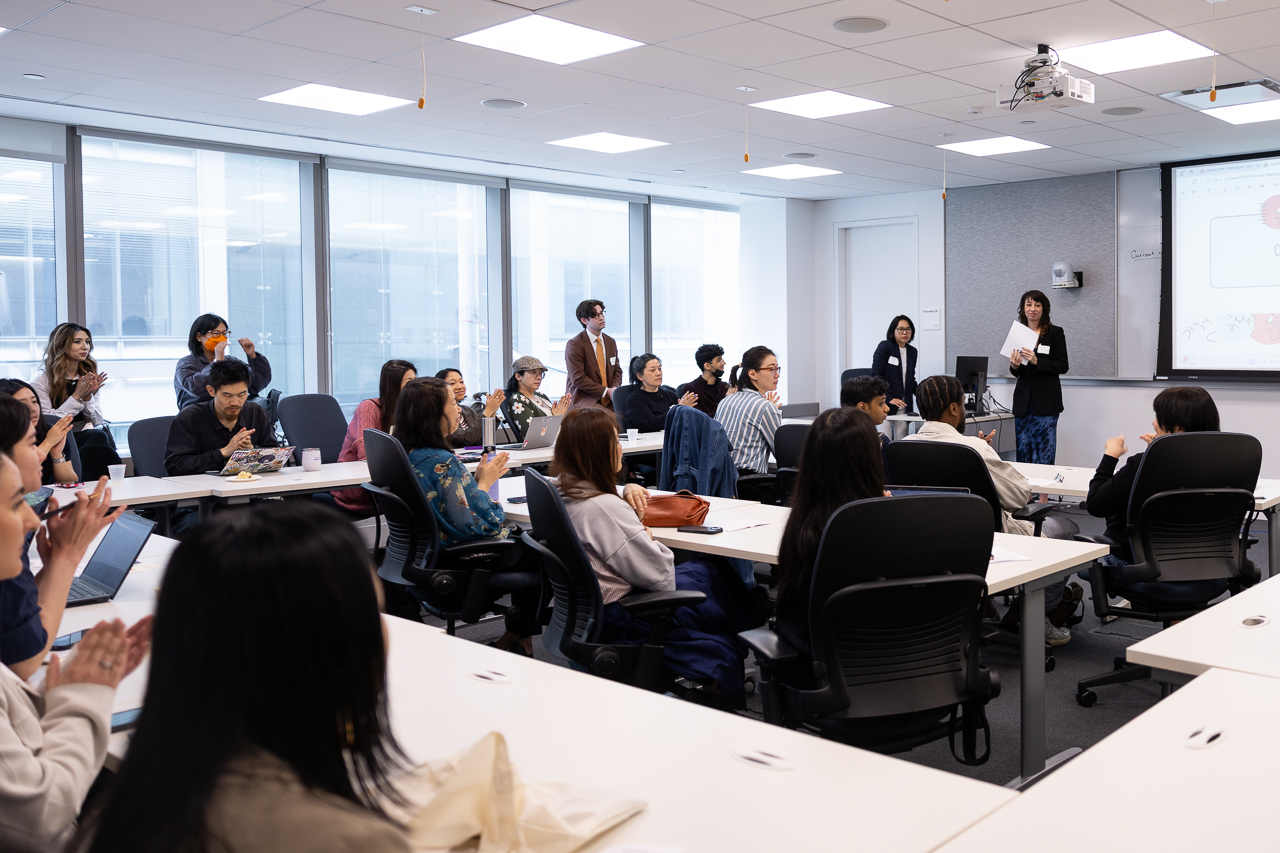
Intergenerational Healing at the NYU Equity Now Conference
Later in the month, Ivy Li, LMSW, Shirley Chen, LCSW and Heather Lee, Community Network Manager, presented at the NYU Equity Now Conference in a workshop titled “Intergenerational Healing: Closing the Gap between Immigrant Youth and Families.” This session explored the silent emotional gaps that often exist between immigrant caregivers and their children shaped by cultural differences, communication barriers, and past trauma. They also addressed the pressures stemming from the model minority myth, the lack of play and leisure, and the deep stigma around mental health, emotions, and help-seeking behaviors in immigrant communities.
Apex’s monthly Family Nights were presented as a tangible, community-rooted model of intergenerational healing. These recurring Friday evening gatherings provide dinner, bilingual workshops, and experiential activities for youth, siblings, and caregivers alike. Through joint play, reflection, and culturally responsive learning, families deepen their relationships while building emotional vocabulary and resilience. Families gained replicable strategies to implement Apex’s healing-centered approach in their own households, supporting culturally responsive care and intergenerational connection.
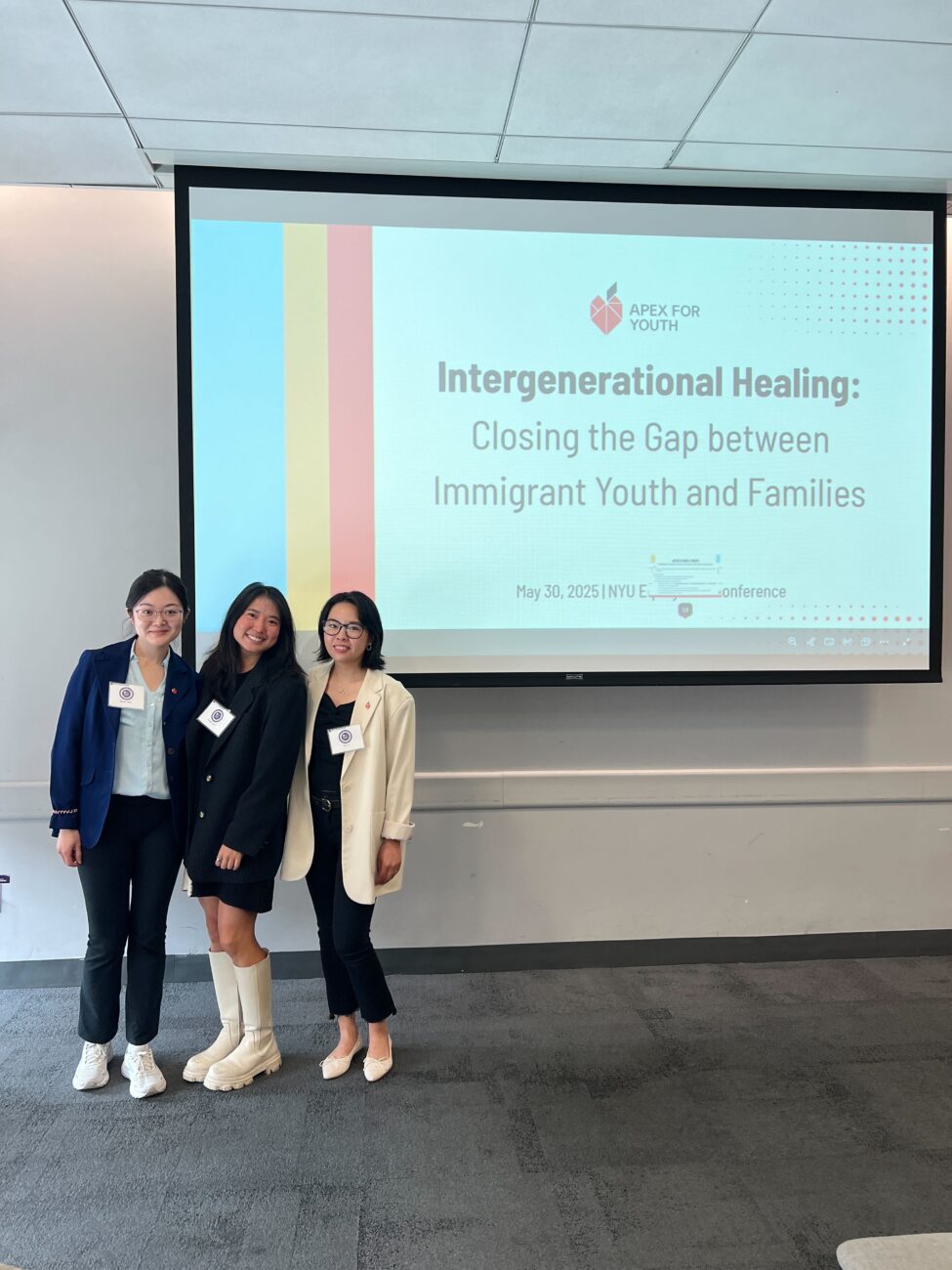
“My biggest goal from family night is actually a sense of joy…Our families face so many daily struggles and they often forget that they can connect with themselves with moments of joy. And we want them to be reminded of this moment, and then use this moment to actually, really connect with their inner self, with their children, and then make those moments more intentional.”
– Ivy Li, LMSW, Associate Director of Mental Health at Apex for Youth.
Mental health through culture and connection at Apex
Both panels carried forward a theme that’s core to Apex’s mission: transformative relationships, when supported by culturally responsive tools, can shift the mental health outcomes of a generation. This Mental Health Awareness Month, we’re reminded that healing is not just individual—it’s collective, intergenerational, and rooted in community.
We’re grateful to AAARI and NYU for hosting such critical conversations and for continuing to center Asian and immigrant voices in the work toward mental health equity. Together, we’re cultivating spaces where Asian American youth and families feel seen, supported, and empowered to grow emotionally, socially, and culturally.
